Navigating a construction contract dispute can feel overwhelming, but it doesn't have to be. Whether you're a contractor, subcontractor, or client, knowing how to articulate your concerns clearly in writing is essential for a resolution. This letter template provides a solid foundation for addressing issues in a professional manner while protecting your rights. Ready to dive deeper into the nuances of construction contract disputes? Keep reading!
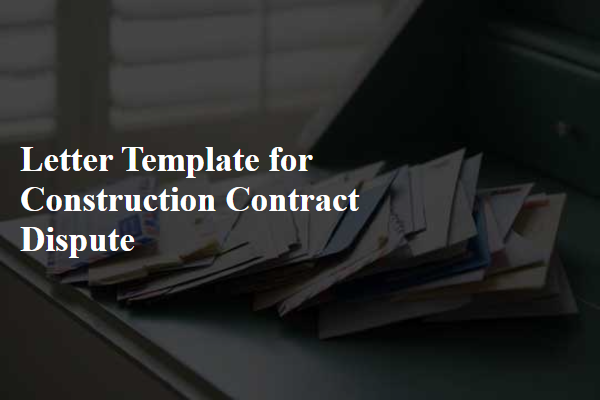
Clarity and specificity of contract terms
Construction contracts often require clarity and specificity to avoid disputes. Vague terms can lead to misunderstandings regarding project scope, timelines, and payment structures. For instance, phrases like "reasonable time frame" can create ambiguity regarding deadlines. Specificity in defining responsibilities for both contractors and clients promotes accountability. Itemized lists of materials and labor costs provide transparency, preventing disagreements over expenses. Furthermore, legally binding clauses regarding change orders, delays, and dispute resolution methods should be clearly articulated to protect all parties' interests. A well-defined contract minimizes the risks of conflicts, ensuring efficient project execution and successful completion.
Accurate project timeline and milestones
Accurate project timelines and milestones are critical in construction contracts, determining project success and stakeholder satisfaction. For instance, a detailed timeline includes specific dates (e.g., start date: January 15, 2023, completion date: December 20, 2023) and key milestones such as concrete pouring (scheduled for April 10, 2023) and structural framing (expected by June 30, 2023). These elements help manage expectations between parties involved, reducing the risk of disputes over delays. Ineffective tracking of progress against the established milestones can lead to contract disputes, affecting financial obligations (such as payment terms) and project deliverables. Accurate record-keeping (daily logs, progress reports) ensures transparency, fostering trust among contractors, subcontractors, and clients throughout the project lifecycle.
Detailed account of breached terms
Construction contract disputes often arise from breached terms, significantly impacting project timelines and budgets. For instance, a contractor may fail to deliver materials as specified in Section 3 of the contract, which outlines delivery timelines, resulting in delays and increased costs for the project owner. Another example includes non-compliance with safety regulations stipulated in Section 7, leading to increased liability and potential penalties. Additionally, failure to adhere to the specified project quality standards outlined in Appendix B can jeopardize the structural integrity of the work completed. Discrepancies in payment schedules defined in Article IV may further exacerbate tensions, as the property owner relies on timely payments to maintain cash flow. Documenting these breaches meticulously is crucial for initiating resolution processes or legal actions.
Evidence of communication and notifications
Construction contract disputes often arise from misunderstandings or failures in communication between involved parties, such as contractors, subcontractors, and clients. Documented communication records, including emails, text messages, and formal notifications, are critical in establishing the timeline of interactions. Key events may include initial project agreements, change orders, and delay notifications. Evidence can substantiate claims related to cost disputes or project timeline extensions. Utilizing timestamps on communications can demonstrate the sequence of events, illustrating compliance with contractual obligations. Detailed records can also enhance negotiations or mediation efforts, proving the merit of one party's position in the dispute resolution process.
Proposed resolution and settlement terms
Construction contract disputes often arise from project delays, budget overruns, or failure to meet specifications. Parties involved may seek resolution through mediation or arbitration. Proposed resolution could involve renegotiating timelines or adjusting budgets. Settlement terms might include partial payments, completion incentives, or extension of deadlines. Essential documents such as the original contract, change orders, and correspondence outlining the dispute will support the resolution process. Clear communication and mutual agreement on responsibilities play a crucial role in reaching a satisfactory conclusion for both parties.

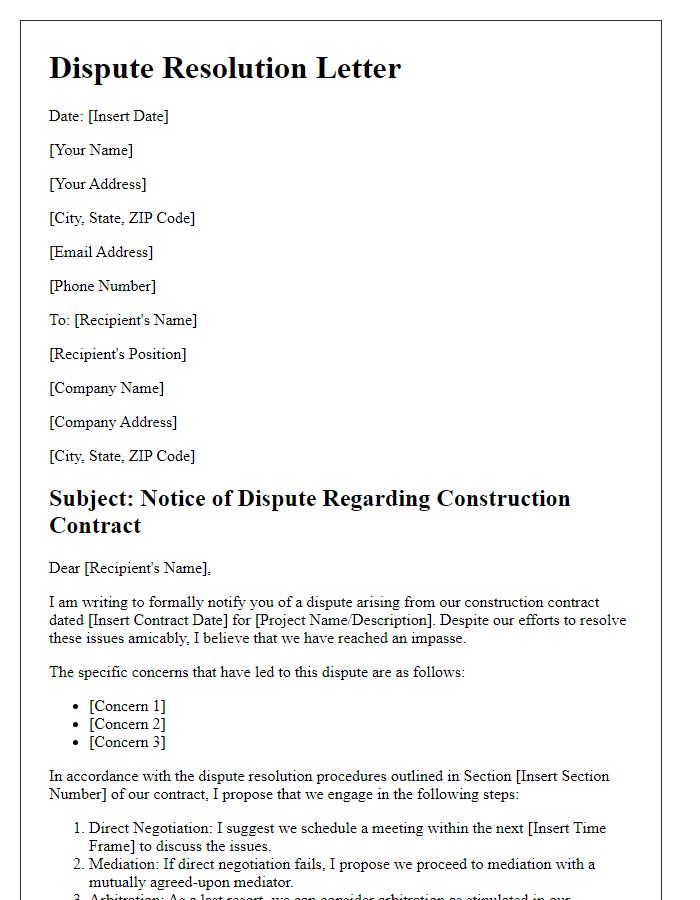
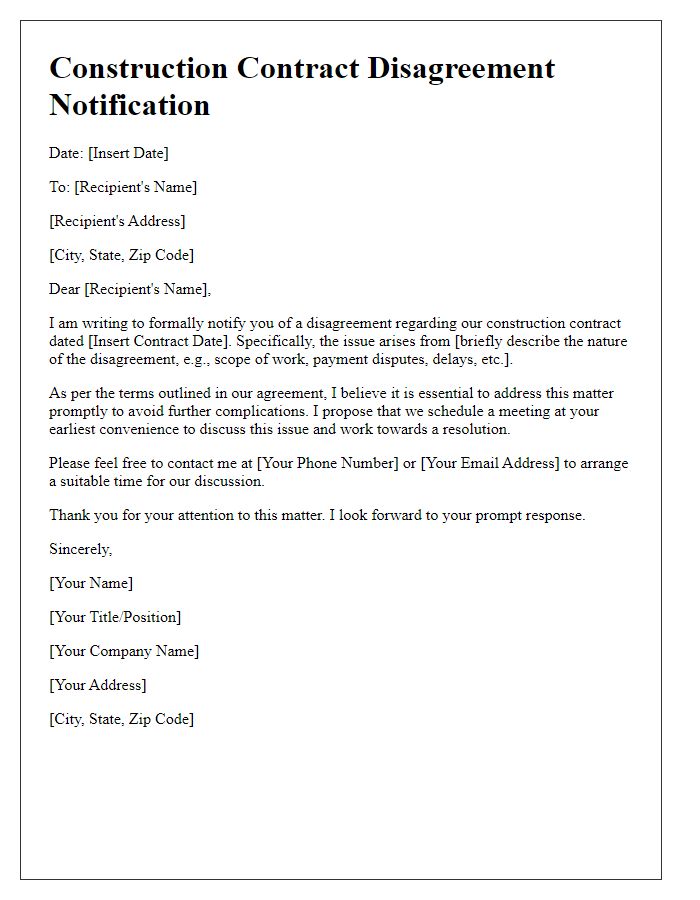

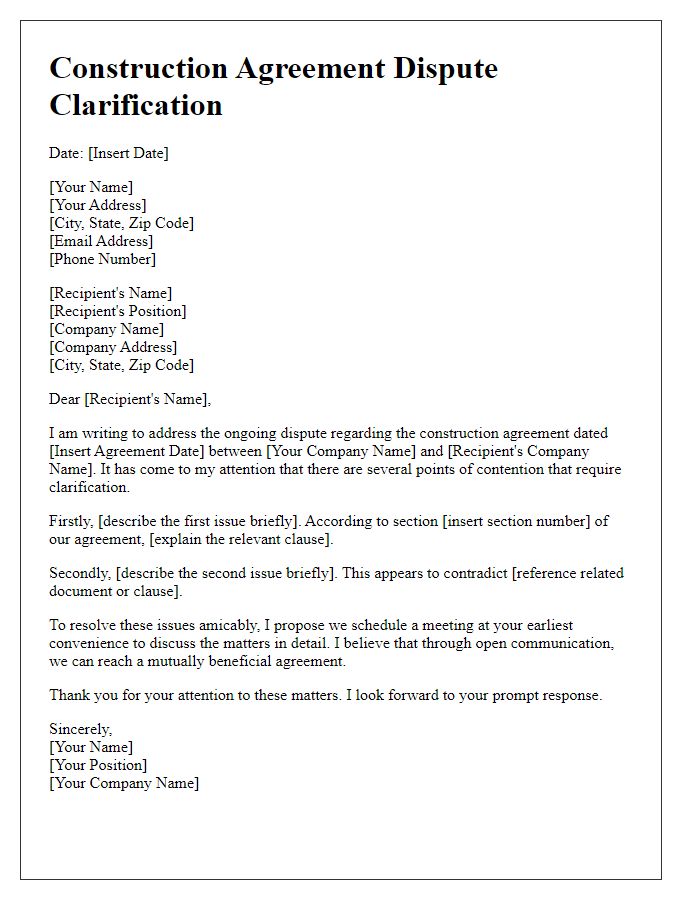
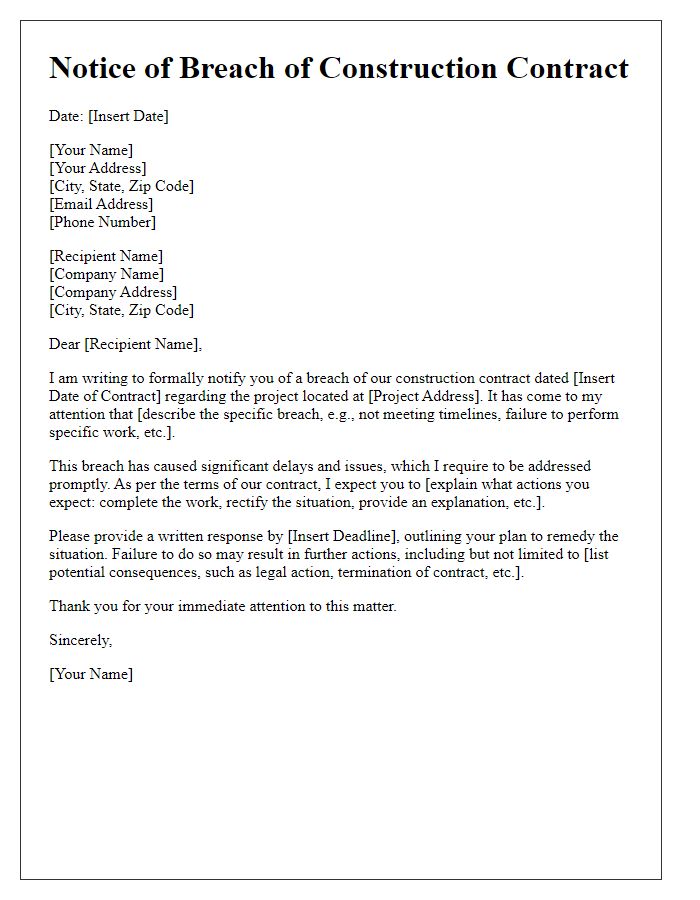
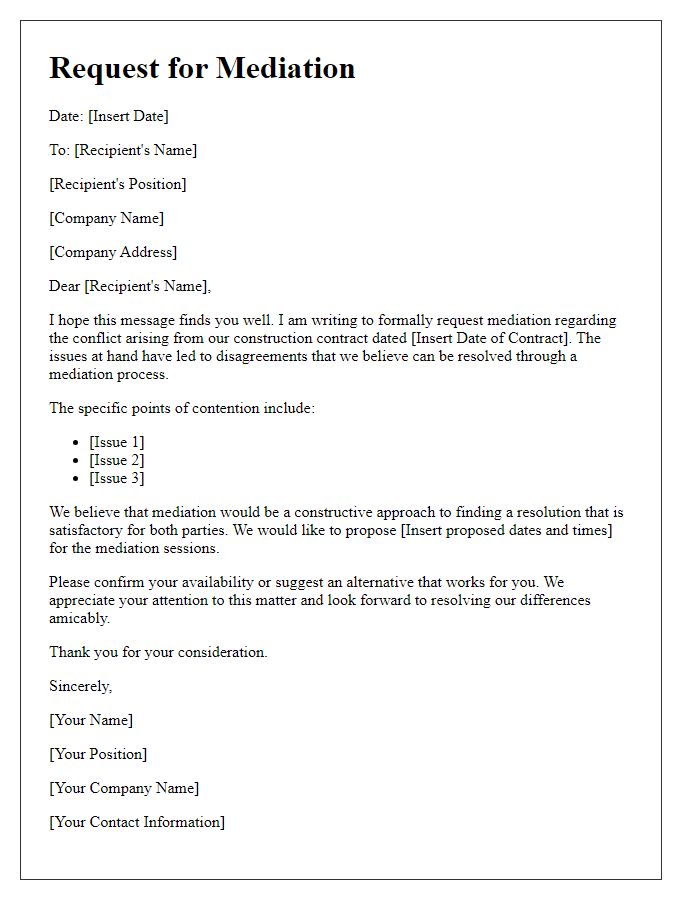
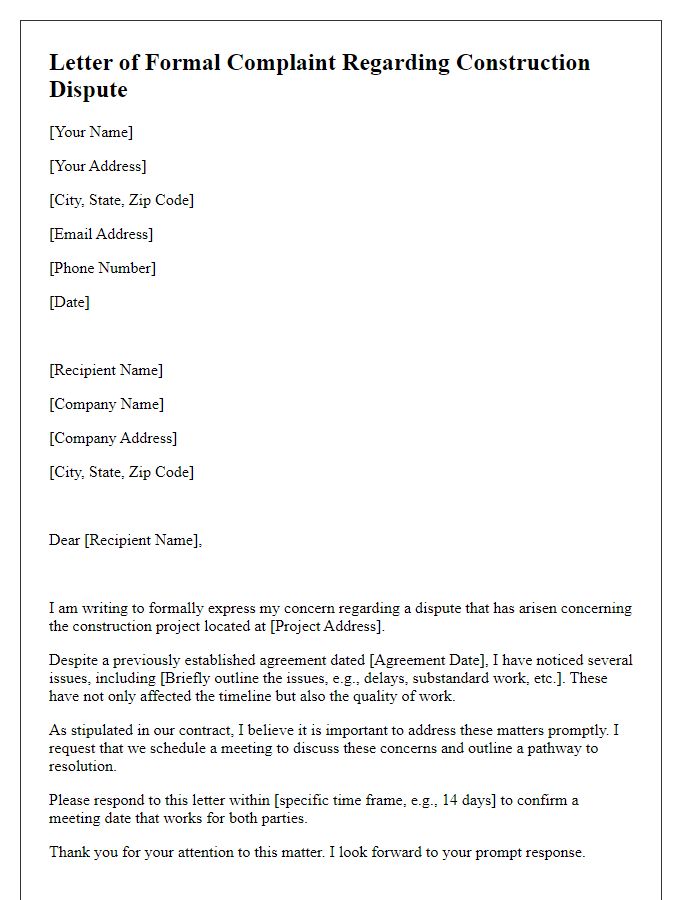
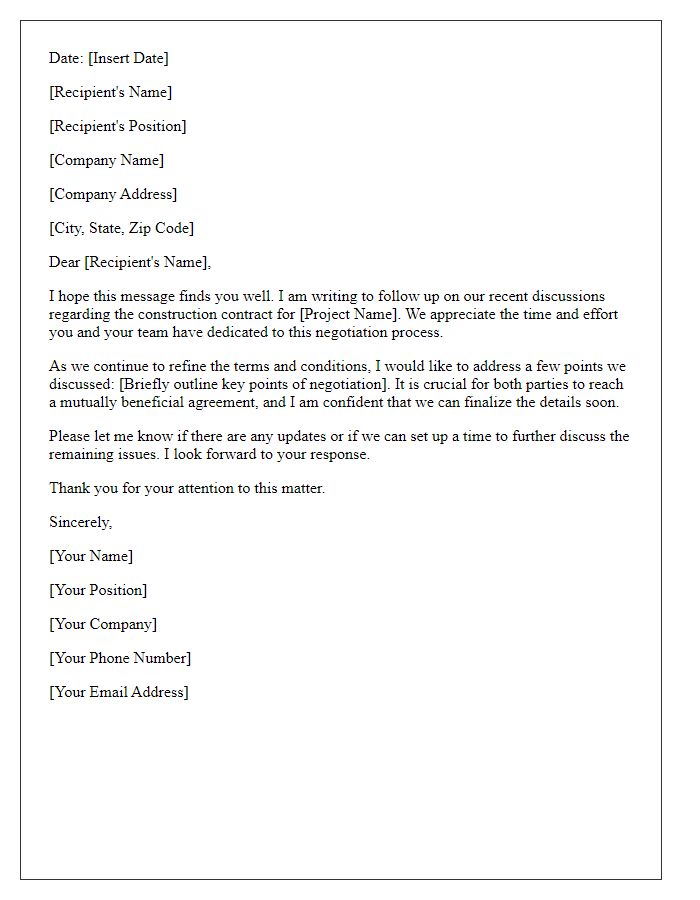
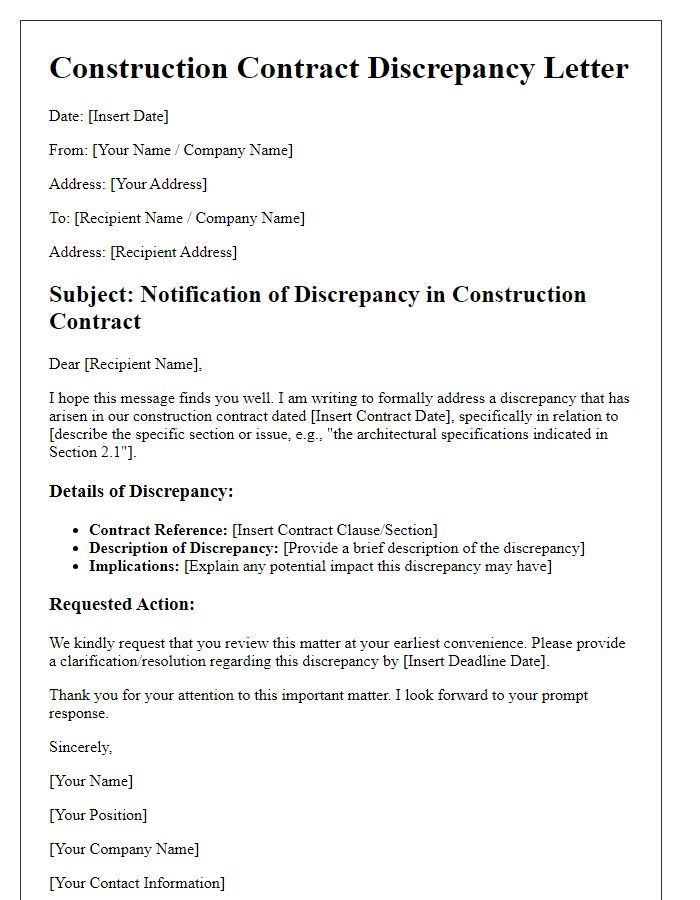
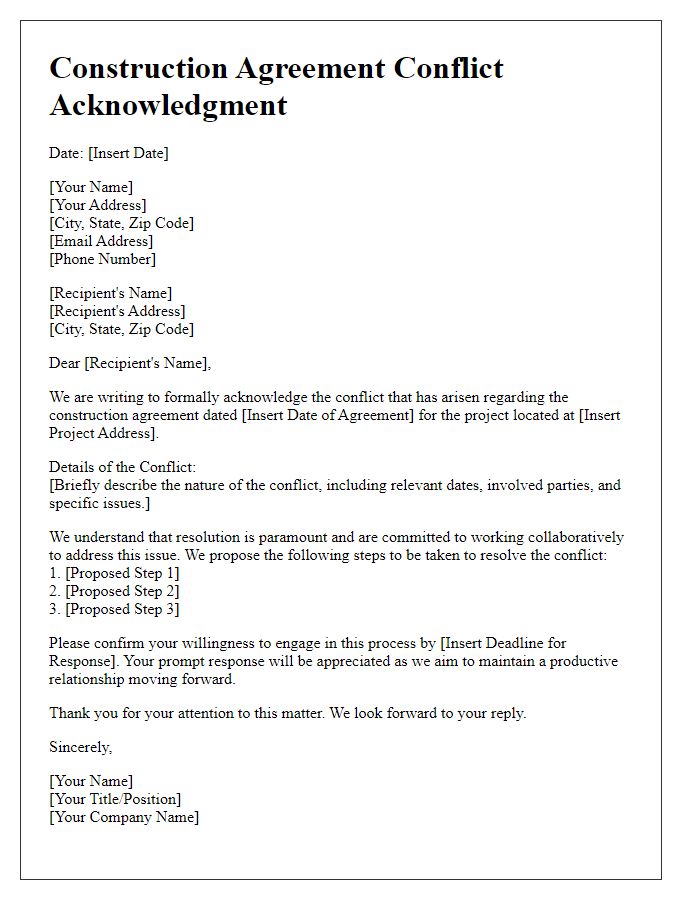


Comments